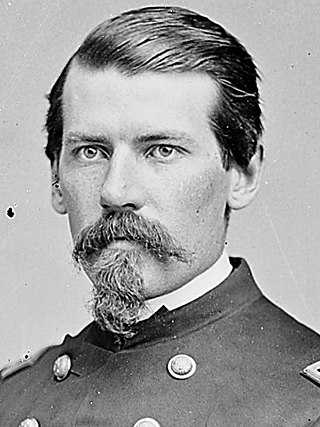
Horace C. Porter was an American soldier and diplomat who served as a lieutenant colonel, ordnance officer and staff officer in the Union Army during the American Civil War, personal secretary to General and President Ulysses S. Grant. He also was secretary to General William T. Sherman, vice president of the Pullman Palace Car Company and U.S. Ambassador to France from 1897 to 1905.

William Joyce Sewell was an American Republican Party politician, merchant, and military officer who served as a U.S. Senator from New Jersey for two non-consecutive terms from 1881 to 1887 and 1895 until his death in 1901.

Lewis Addison Grant was a teacher, lawyer, soldier in the Union Army during the American Civil War, and later United States Assistant Secretary of War. He was among the leading officers from the state of Vermont, and received the Medal of Honor for "personal gallantry and intrepidity."
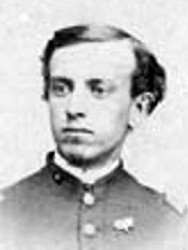
John James Toffey was a United States Union Army officer during the American Civil War who received the Medal of Honor.
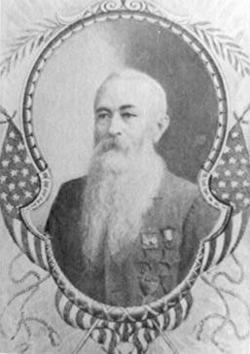
Forrester Lore Taylor was an officer in the Union Army during the American Civil War who received the Medal of Honor for his bravery at the May 3, 1863 Battle of Salem Church.
Albert Oss was a soldier in the Union Army during the American Civil War who received the Medal of Honor. He served in the 11th New Jersey Volunteer Infantry Regiment.
David Southard was a Union Army soldier during the American Civil War who received America's highest military decoration the Medal of Honor for his actions at the Battle of Sailors Creek
James Robert Evans was an American Civil War soldier and Medal of Honor recipient.
Aaron Blake Tompkins was a cavalry soldier who received the Medal of Honor while serving in the Union Army during the American Civil War.

Thomas R. Hawkins was an African-American Union Army soldier during the American Civil War and a recipient of America's highest military decoration—the Medal of Honor—for his actions at the Battle of Chaffin's Farm.

Charles Henry Tompkins was an American officer who served as a Union Army colonel, who received an appointment to the brevet grade of Brigadier General of volunteers during the American Civil War. He was a recipient of the Medal of Honor for valor in action on June 1, 1861, in the Battle of Fairfax Court House. This was the first action in the Civil War for which a Union Army officer would receive the Medal of Honor, although it was not awarded until 1893. He is not to be confused with another Union officer, Brevet Brigadier General Charles H. Tompkins who commanded the 1st Rhode Island Light Artillery Regiment.

For the federal official appointed see Charles William Anderson
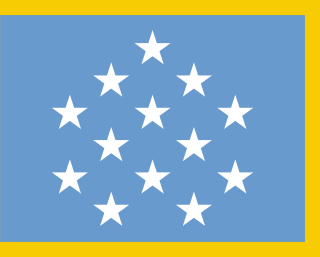
The Medal of Honor (MOH) is the United States Armed Forces' highest military decoration and is awarded to recognize American soldiers, sailors, marines, airmen, guardians, and coast guardsmen who have distinguished themselves by acts of valor. The medal is normally awarded by the president of the United States and is presented "in the name of the United States Congress." It is often colloquially referred to as the Congressional Medal of Honor.
William Brant, Jr. was an American soldier who fought in the American Civil War. Brant received the country's highest award for bravery during combat, the Medal of Honor, for his action at Petersburg, Virginia on 3 April 1865. He was honored with the award on 10 May 1865.

Charles Amory Clark was an American soldier who fought in the American Civil War. Clark received the country's highest award for bravery during combat, the Medal of Honor, for his action at Brooks Ford, Virginia on May 4, 1863. He was honored with the award on May 13, 1896.

James Madison Drake was an American newspaper publisher who fought in the American Civil War. Drake received the country's highest award for bravery during combat, the Medal of Honor, for his action during the Battle of Port Walthall Junction in Virginia on May 6, 1864. He was honored with the award on March 3, 1873.
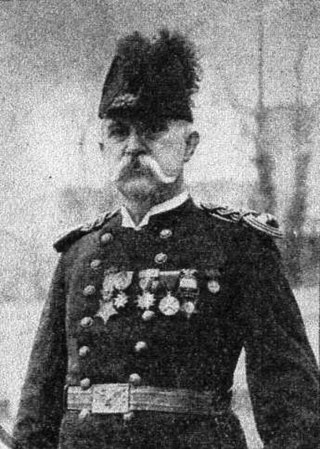
Joseph Leonard Follett was an American soldier who fought in the American Civil War. Follett received the country's highest award for bravery during combat, the Medal of Honor, for his action during the Battle of Island Number Ten in New Madrid, Missouri on 3 March 1862 and the Battle of Stones River in Tennessee on 31 December 1862. He was honored with the award on 19 September 1890.

Private Frank Emil Fesq was a German soldier who fought in the American Civil War. He received the United States' highest award for bravery during combat, the Medal of Honor, for his action during the Third Battle of Petersburg in Virginia on April 2, 1865. He was honored with the award on May 10, 1865.
Milton Matthews was an American soldier who fought in the American Civil War. Matthews received his country's highest award for bravery during combat, the Medal of Honor. Matthews's medal was won for capturing the flag of the 7th Tennessee Infantry at the Third Battle of Petersburg, Virginia. He was one of six members of the regiment to earn that award that day. He was honored with the award on May 10, 1865. Matthews was born in Pittsburgh, where he entered the service, and died in Milwaukee.












